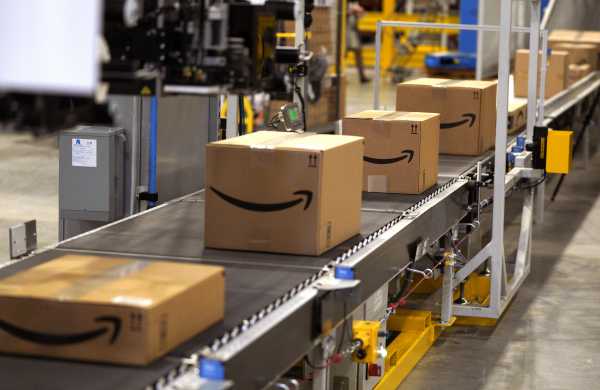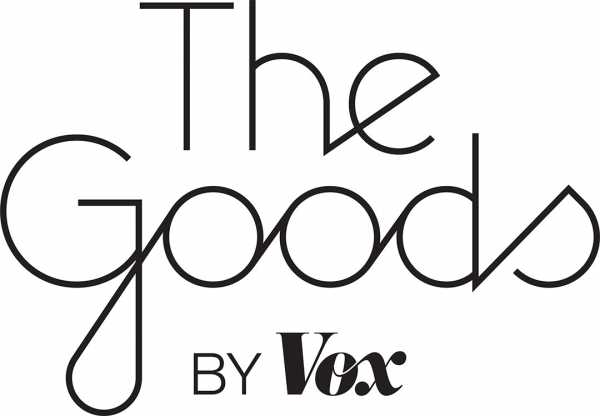

Amazon is the second most trusted institution in the United States, behind the military, according to a new survey conducted by researchers from Georgetown University and NYU.
The goal of the survey was to pull apart the broadly recognized fact that “Americans have lost confidence in many of our institutions,” and particularly in the democratic political system. In the intro, the researchers write, “We look to assess whether support for President Trump and other anti-establishment candidates reflects a loss of confidence in institutions — or even a more serious underlying alienation from liberal democracy,” and explain that they asked 5,400 respondents (more than is typically used for a nationally representative political poll) to “indicate their level of confidence in 20 US institutions.”
The top five were the military, Amazon, Google, local police, and colleges and universities. The bottom five were the press, the executive branch, Facebook, political parties, and Congress.
Sorted by major party affiliation, the findings become even odder, because Democrats and Republicans diverge sharply on almost every point except Amazon (and the military, and their loathing of Facebook). The five most trusted institutions for Democrats are Amazon, colleges and universities, the military, Google, and the FBI (bottom: religion, Facebook, political parties, Congress, and the executive branch). The five most trusted institutions for Republicans are the military, local police, Amazon, the executive branch, and religion (bottom: Congress, organized labor, political parties, Facebook, and the press).
There are some problems with this survey, or at least with the way it was presented. Categories like “nonprofits” and “major companies” are broad and vague to the point of being potentially useless — how would I possibly say whether I trust Google more or less than I trust all not-for-profit organizations, a grouping that includes my local VA hospital and the Church of Scientology? How many Americans are able to conjure a very specific idea of what counts as a nonprofit or a major company, or even organized labor?
And “trust” is a funny word. Trust what? You can trust that Amazon will provide you with reliable two-day delivery of affordable products without trusting that it has commendable labor practices. You can trust that Amazon is the biggest, simplest, most accessible and comprehensive purveyor of books without trusting that this did not totally disfigure the publishing industry. You may also even trust that your personal data is in better hands when shared with Amazon than when shared with Google or Facebook or Apple, and you may not even be able to articulate a reason.
A year ago this week, The Verge partnered with Reticle Research to survey Americans on their feelings and attitudes about the world’s largest tech companies, including Amazon, Apple, Facebook, Google, Microsoft, and Twitter.
They found that Americans trust Amazon with their personal information “almost as much as they trust their own bank,” and that respondents were more likely to recommend Amazon’s services to their friends and family than they were any other tech company.
Most respondents said they “greatly like” Amazon, and that it’s had a positive effect on society. They were more passionate about Amazon than they were about any other company including Apple, which is known for its indomitable market share and its ravenous fanboys.
Reporter Nick Statt analyzed the numbers, inferring that trust in Amazon likely comes from the fact that the company has spent billions of dollars on improving its services and expanding without end. “Unlike Apple, which has the largest cash hoard of any company on the planet,” he wrote, “Amazon maintains the appearance of prioritizing the value and efficiency of its services, like its Prime membership, over financial gain. Following its $13.7 billion purchase of Whole Foods, Amazon’s very first business strategy was to drop the price of avocados, organic eggs, meat, and other popular grocery items.”
You can trust that Amazon will provide you with reliable two-day delivery of affordable products without trusting that it has commendable labor practices
This is hard to resist, as a customer with very little individual clout to wield — even if you are fully aware that “Amazon’s long-term goals are to crush the competition and ruthlessly gain market share, as it did first in books and then e-books and now general e-commerce,” Statt pointed out. (Did you know, incidentally, that Amazon was originally supposed to be called Relentless.com?)
I can’t know what the respondents to Georgetown’s survey meant when they said they felt “confidence” in Amazon. But I am a person who exists and buys things, so I can make an educated guess as to one possibility: I trust Amazon like I trust gravity. As in, I trust that it is unavoidable and something I don’t even have to learn to live with, as my body is expertly built to do so already.
I trust Amazon sort of like I trust that one day my bones will crumble into dust and everyone I’ve ever loved will forget about me, save for a yearly, “Ah … didn’t I know someone who?” each time a Jake Gyllenhaal movie is the only thing they can find on their hotel room TV.
I trust Amazon the way I trust that the sun will rise each morning, until that day on which it explodes.
This is the feeling befitting a nearly $1 trillion company that not only sells any object you can imagine but also owns the ships that carry the objects between continents, the trucks (and drones!) that bring them to your door, a majority stake in many of the companies that create said objects, and the musculature of the internet that allows you to select them.
Sourse: breakingnews.ie
0.00 (0%) 0 votes


































